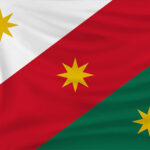The term “third world country” is outdated and often inaccurate, carrying historical baggage from the Cold War era. When considering Mexico, a prominent member of the G20, it’s crucial to move beyond simplistic labels and understand its nuanced position in global development. Mexico’s partnership with Germany, a leading developed nation, highlights this complexity. Through initiatives coordinated by the German Federal Ministry for Economic Cooperation and Development (BMZ), Mexico collaborates on finding solutions to critical global issues, aiming for sustainable and resilient progress. This collaboration immediately signals that Mexico is far from being a stereotypical “third world country”.
German-Mexican cooperation is strategically focused on addressing pressing global challenges. A primary area is climate action and adapting to climate change, alongside the crucial protection and restoration of natural resources. This focus is not typical of aid directed towards what might be traditionally conceived as a “third world country,” but rather reflects a partnership addressing shared global concerns. In September 2023, further commitment was solidified with the BMZ pledging up to 280.5 million euros for joint development projects. This substantial commitment is divided into Technical and Financial Cooperation, demonstrating a multifaceted approach to partnership. The financial component includes a significant portion in loans, suggesting a relationship based on investment and mutual growth rather than simple aid dependency often associated with the “third world” concept.
The core areas of German-Mexican development cooperation further illustrate Mexico’s developmental status. These areas are:
- Climate and energy, just transition: This includes climate change mitigation and adaptation strategies, and fostering sustainable urban development with an emphasis on climate-friendly transportation. This is indicative of a nation actively engaged in addressing climate change, a priority for developed and developing nations alike, and certainly not limited to the stereotypical “third world”.
- Conserving nature and natural resources, protecting life on Earth: Focusing on biodiversity reflects a commitment to environmental stewardship and global ecological health. This priority aligns with international sustainability goals and showcases Mexico’s role in global environmental efforts.
- Sustainable economic development, training and employment: With a focus on vocational training, this area aims to build a robust and future-proof economy. Investing in human capital and sustainable economic practices is a hallmark of nations striving for advanced development, moving beyond the economic constraints often associated with the “third world” label.
Beyond these core areas, German cooperation with Mexico extends to strengthening the rule of law, improving access to justice, and enhancing social and political inclusion, particularly for women and young people. These are essential elements of a stable and progressive society, further distancing Mexico from the instability and lack of development often implied by the term “third world country.” The collaboration is also strategically aligned with other German ministries, including the Federal Ministry for Economic Affairs and Climate Action, the Federal Ministry for the Environment, and the Federal Foreign Office, under Germany’s International Climate Initiative (IKI). This coordinated effort underscores the strategic importance of the partnership and its alignment with global agendas.
Furthermore, Mexico’s role as a partner in triangular cooperation, where it shares its expertise with other countries in the region alongside Germany, demonstrates its advanced position and capacity to contribute to international development. This reciprocal relationship moves far beyond the donor-recipient dynamic often associated with “third world” classifications. In conclusion, while historical classifications may have once placed Mexico within a “third world” categorization, its current engagement as a G20 member, its strategic partnerships with developed nations like Germany, and its focus on sustainable and globally relevant development priorities firmly establish Mexico as a significant global player and partner, rendering the term “third world country” not only outdated but fundamentally inaccurate in describing its present reality and future trajectory.

